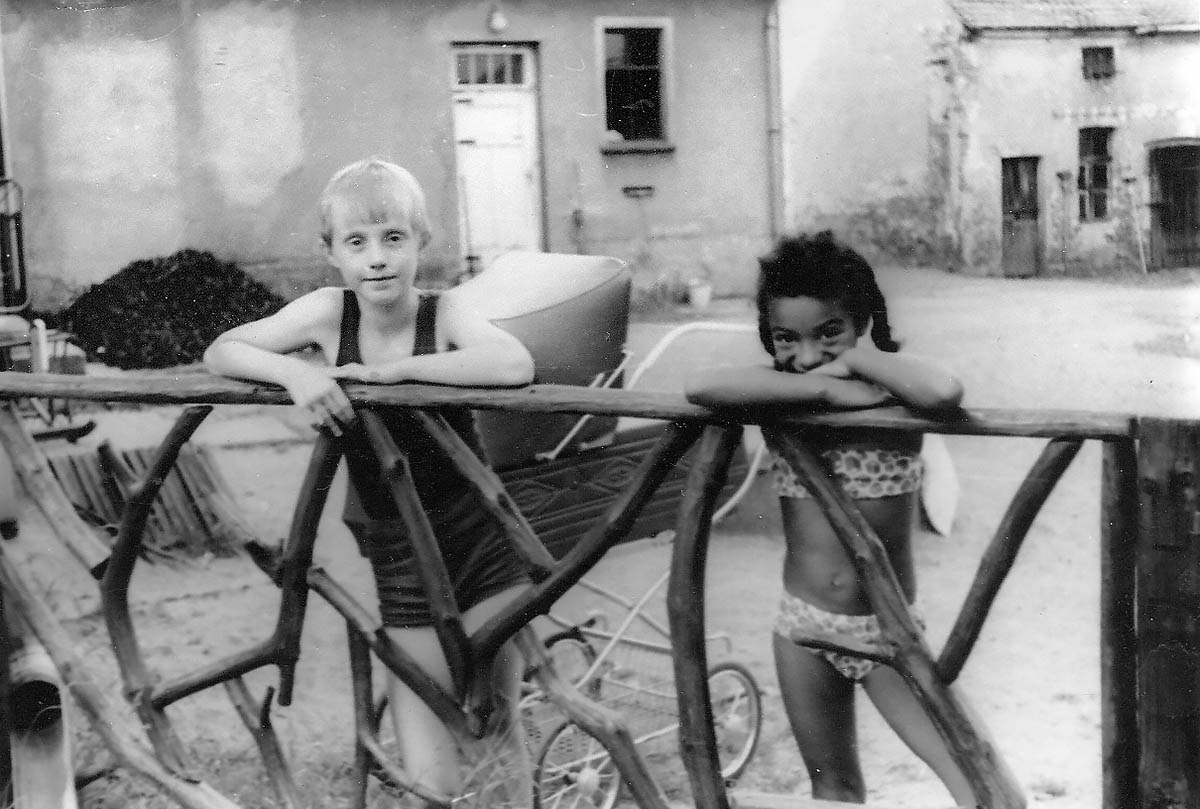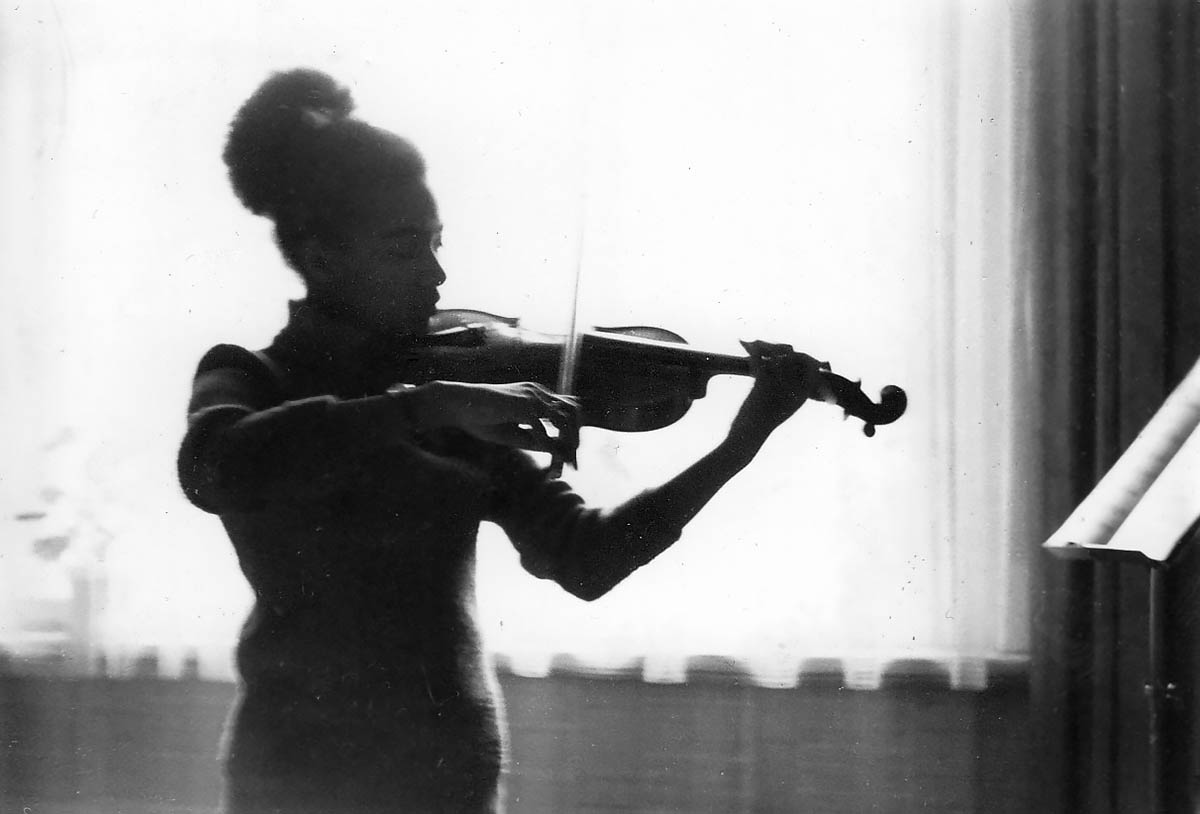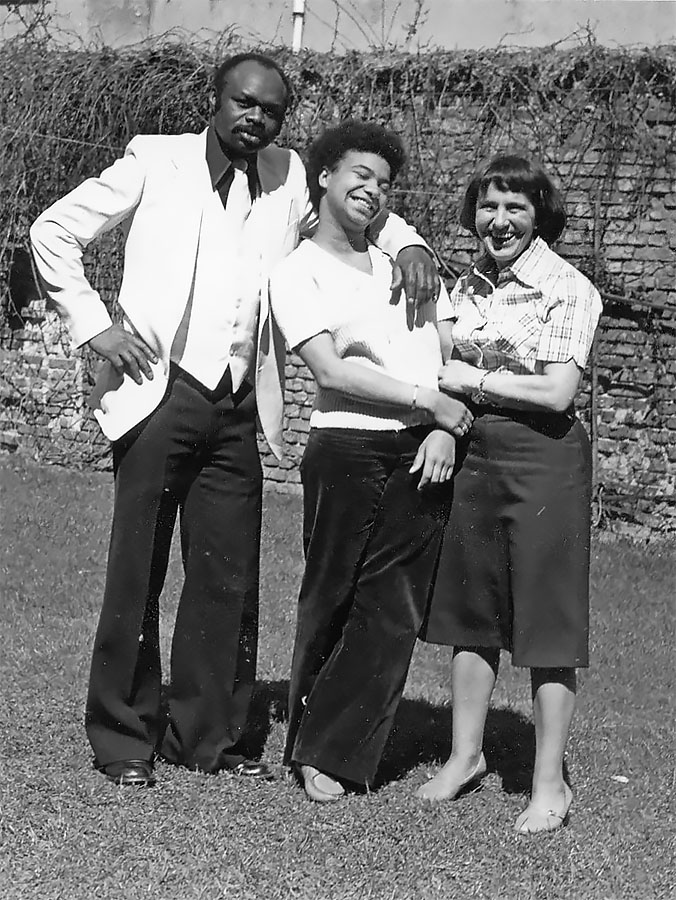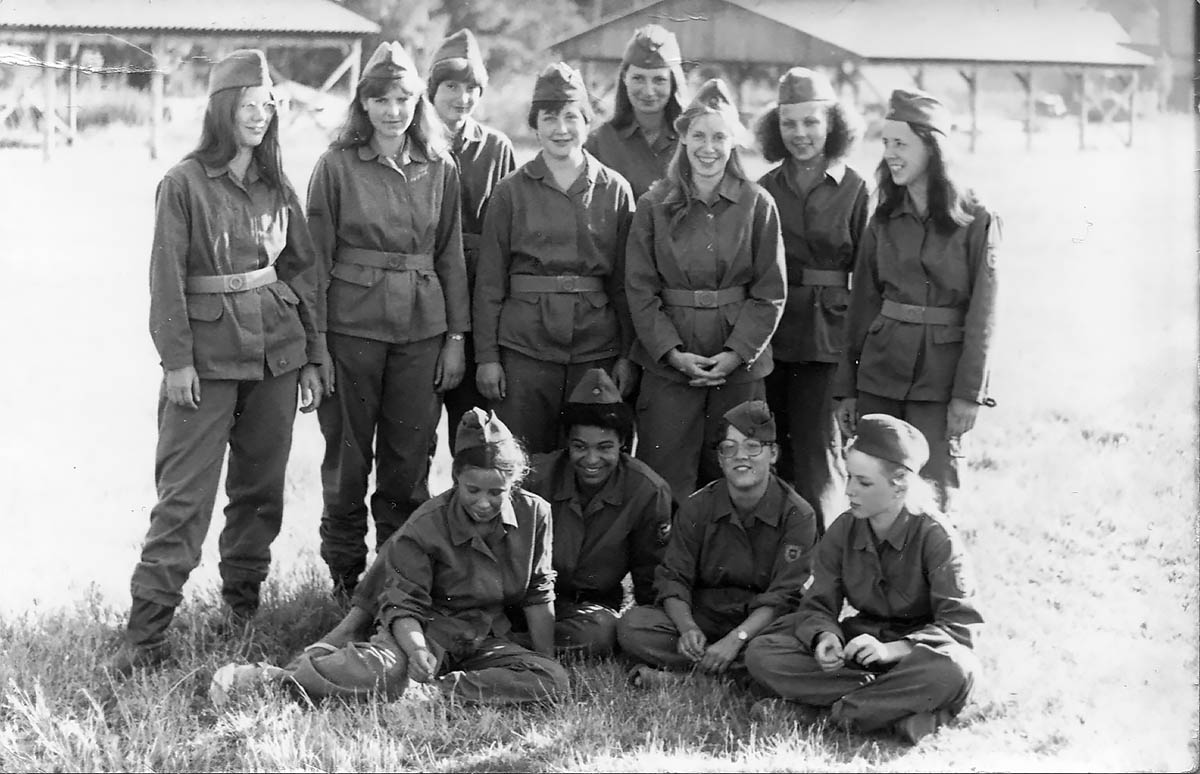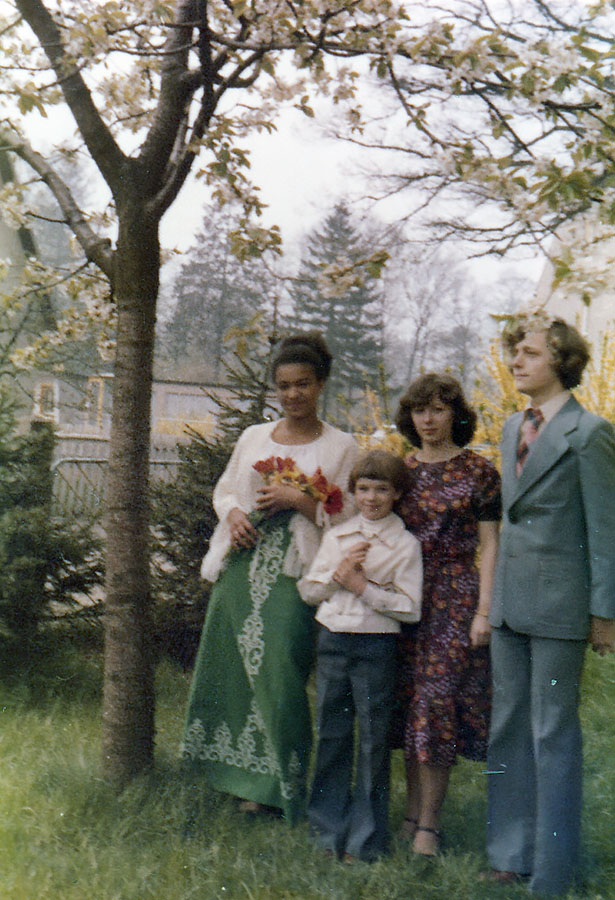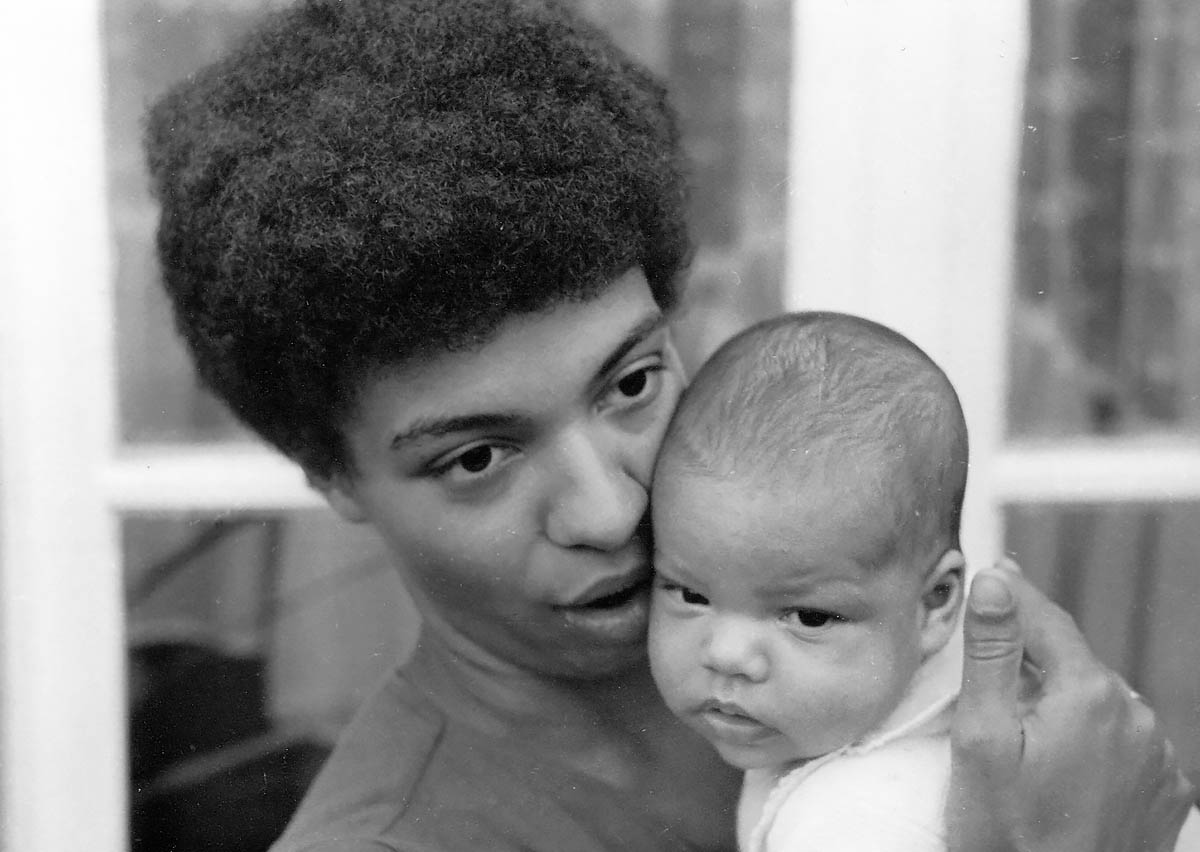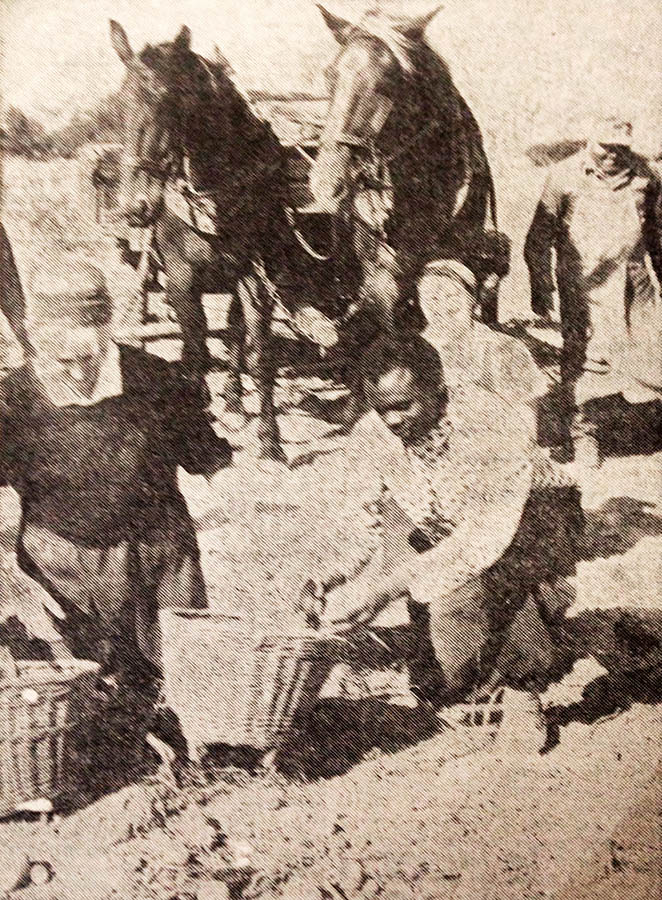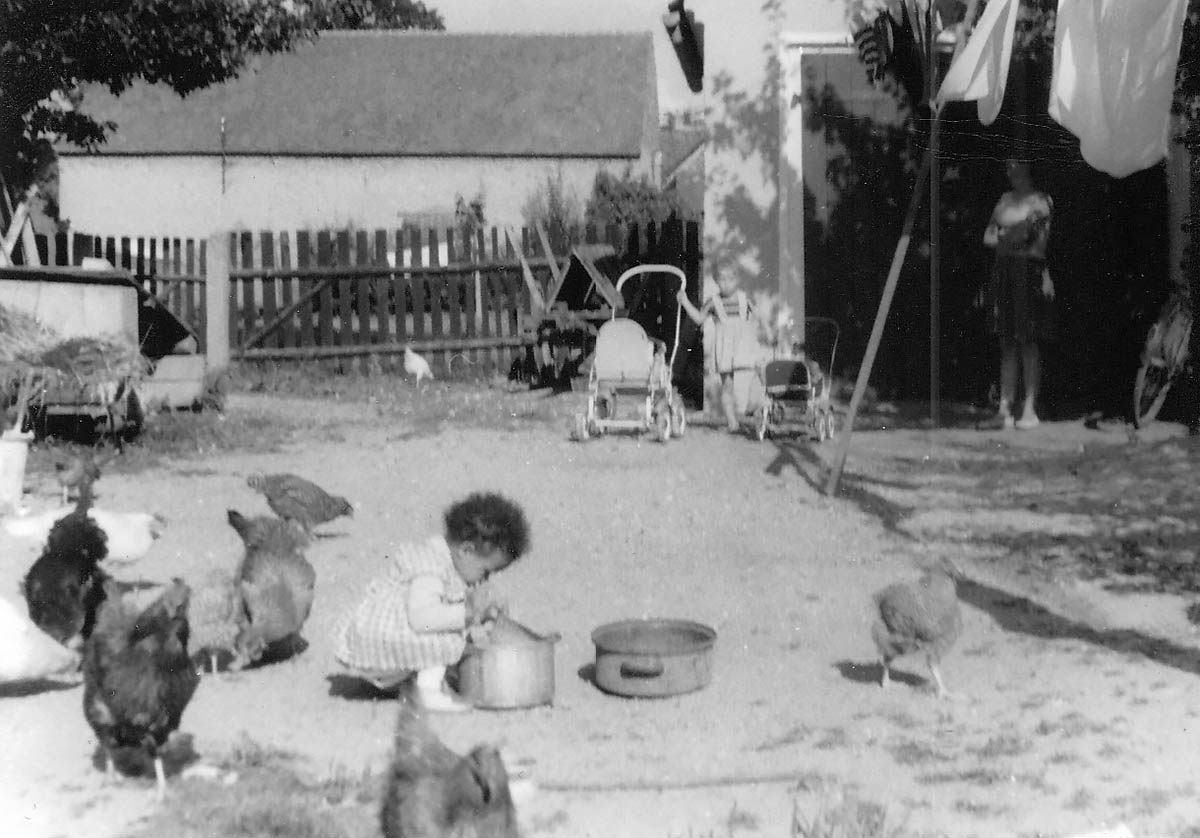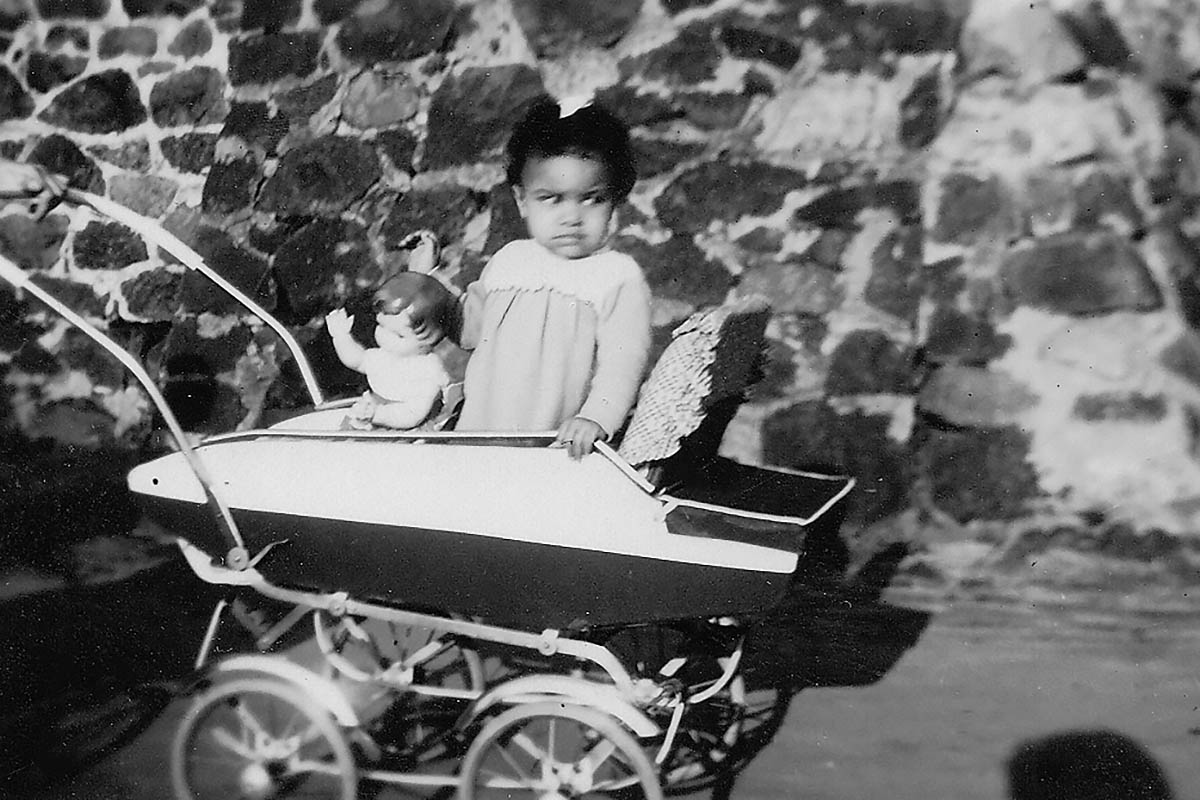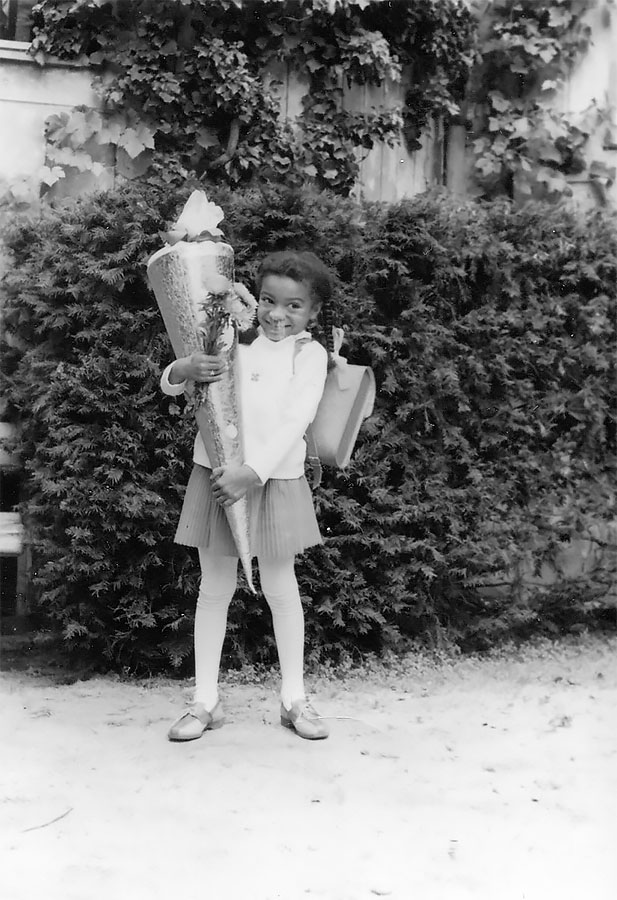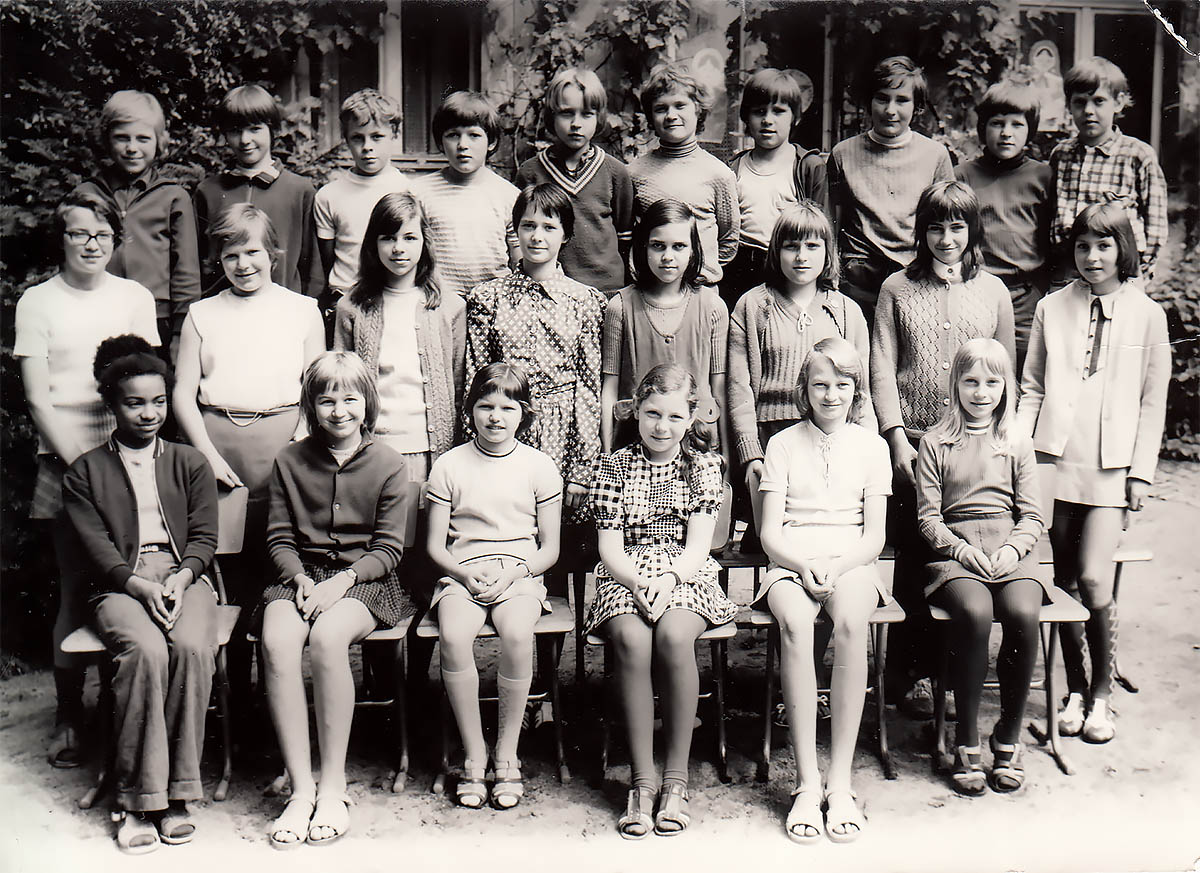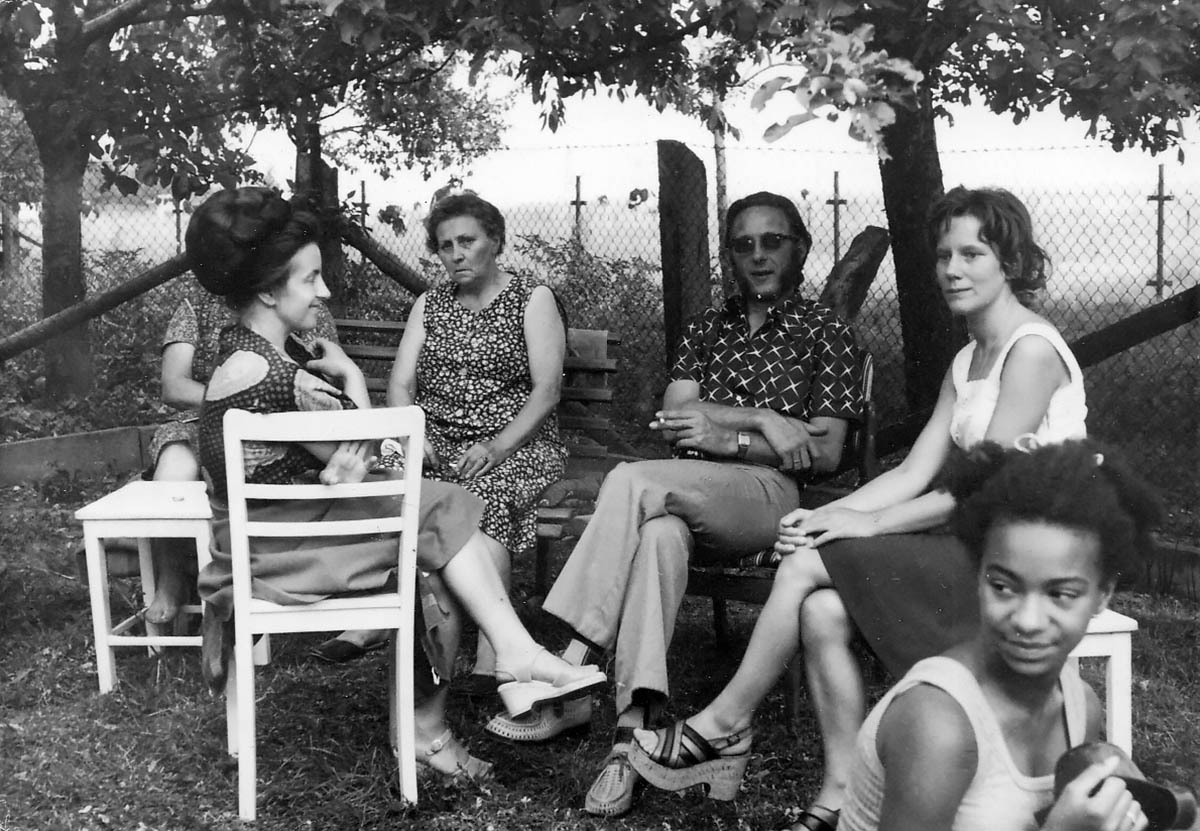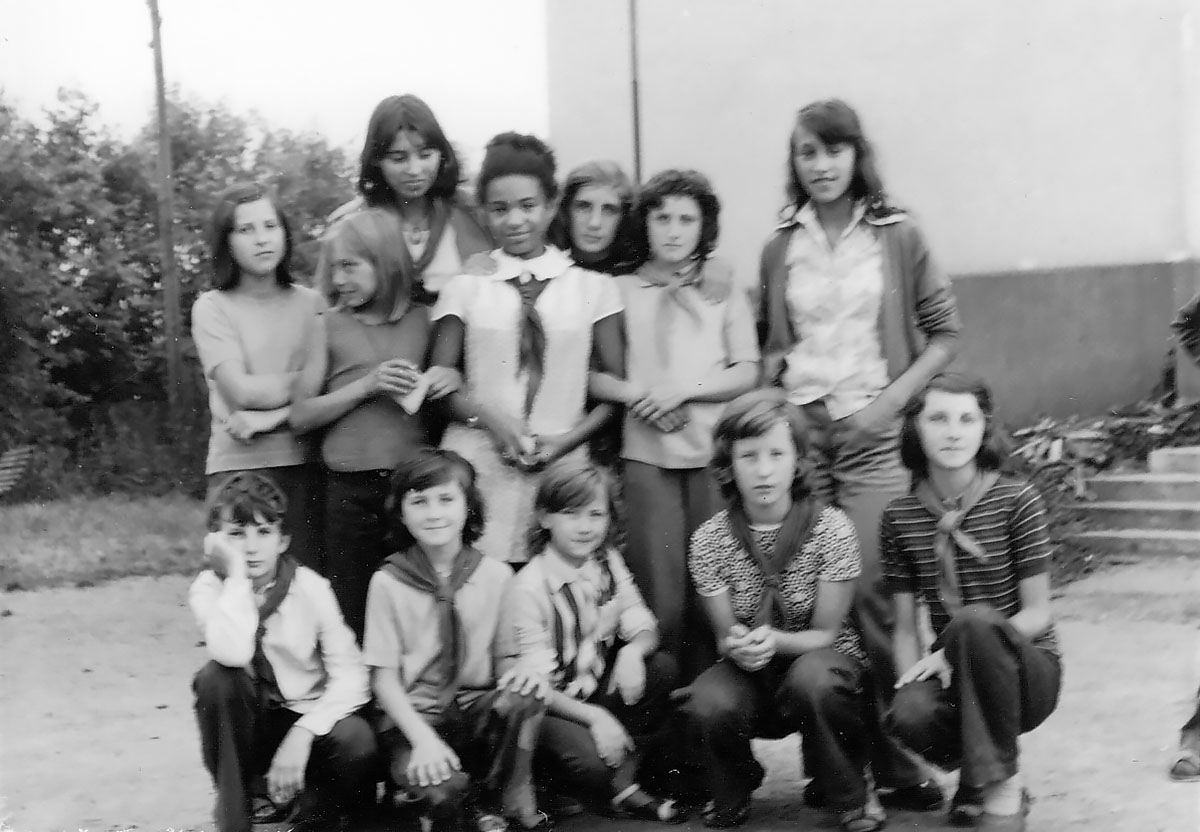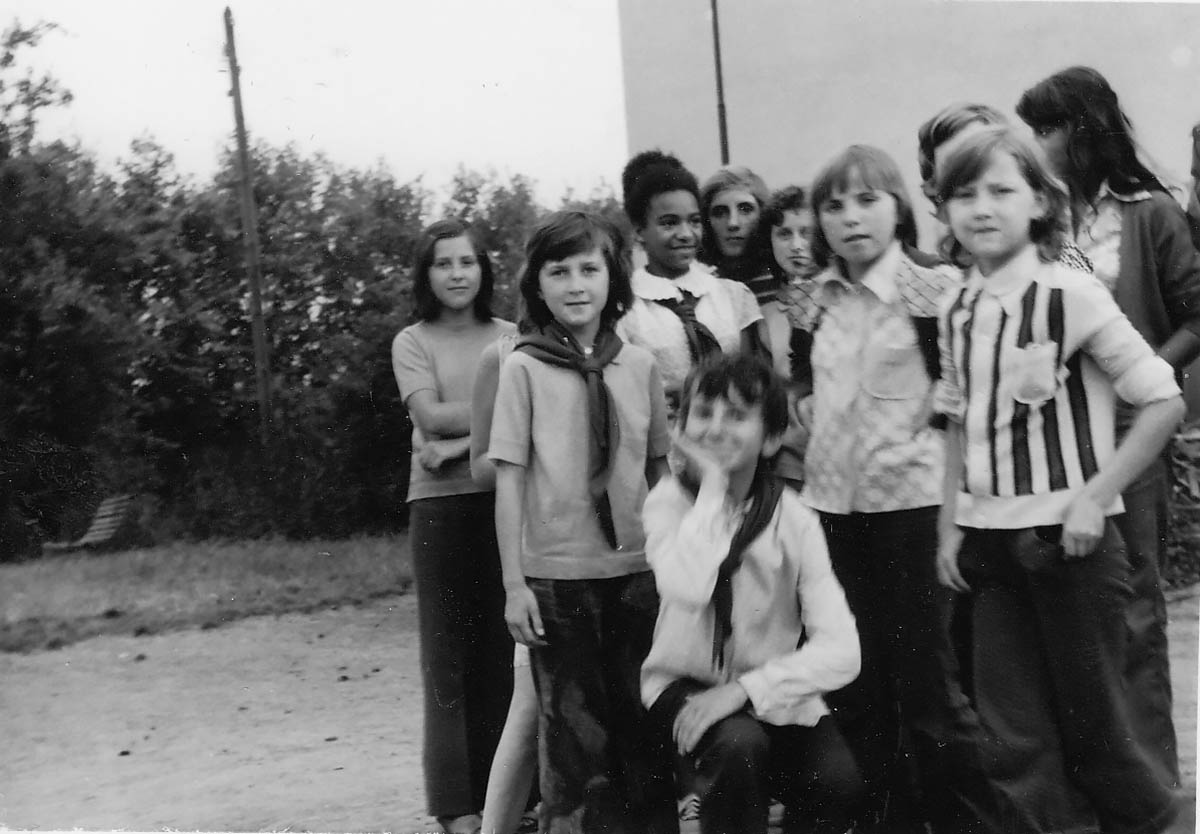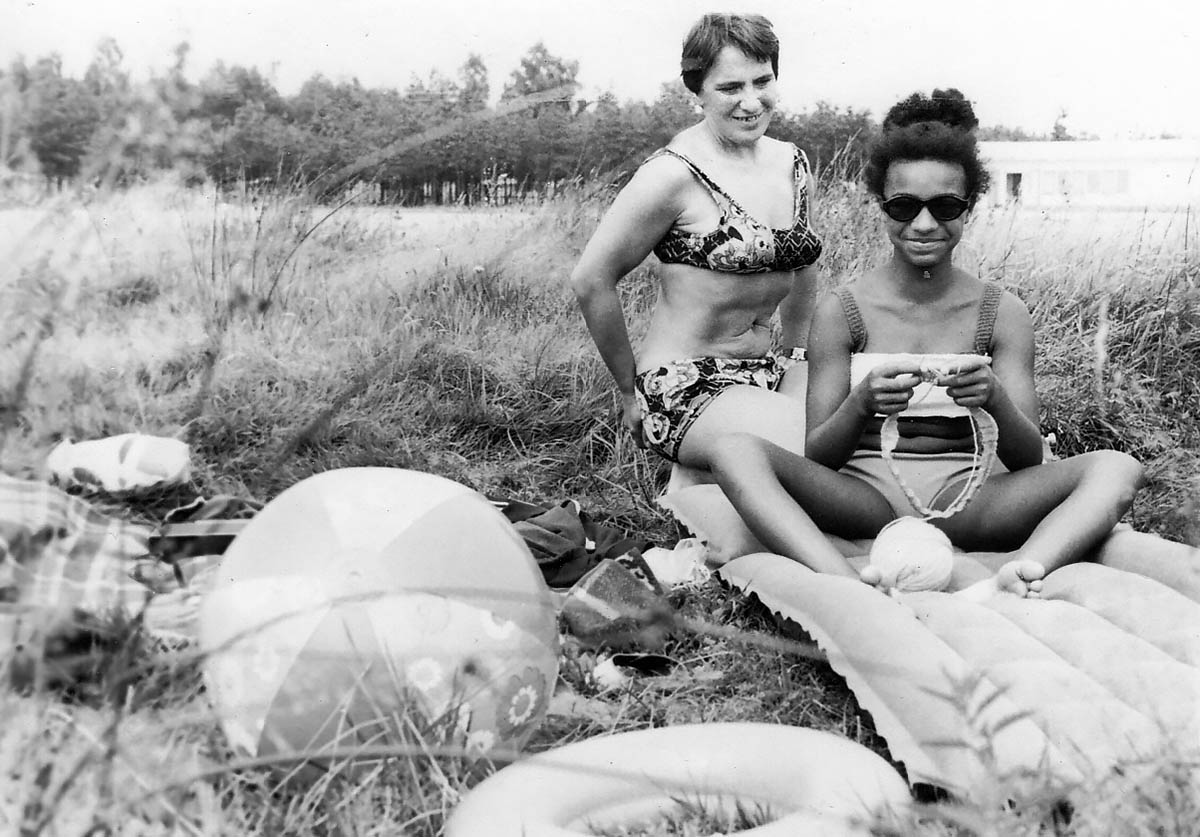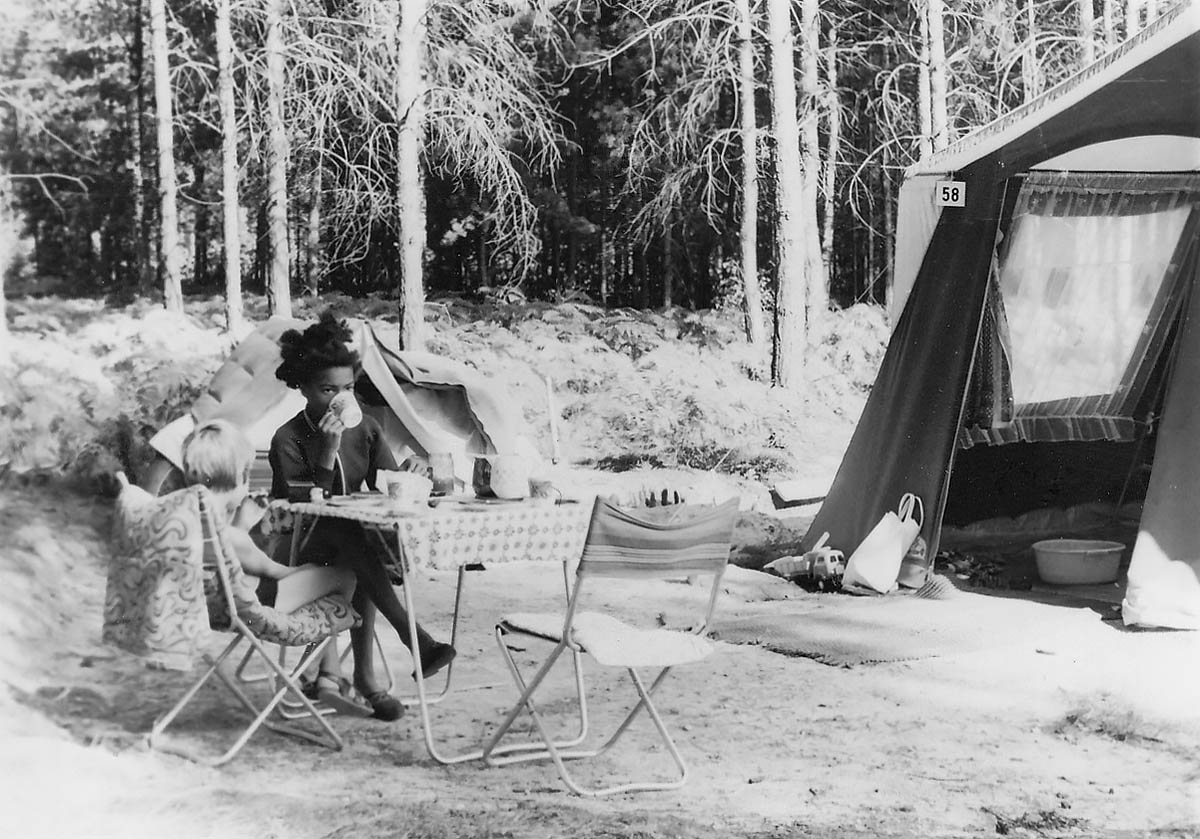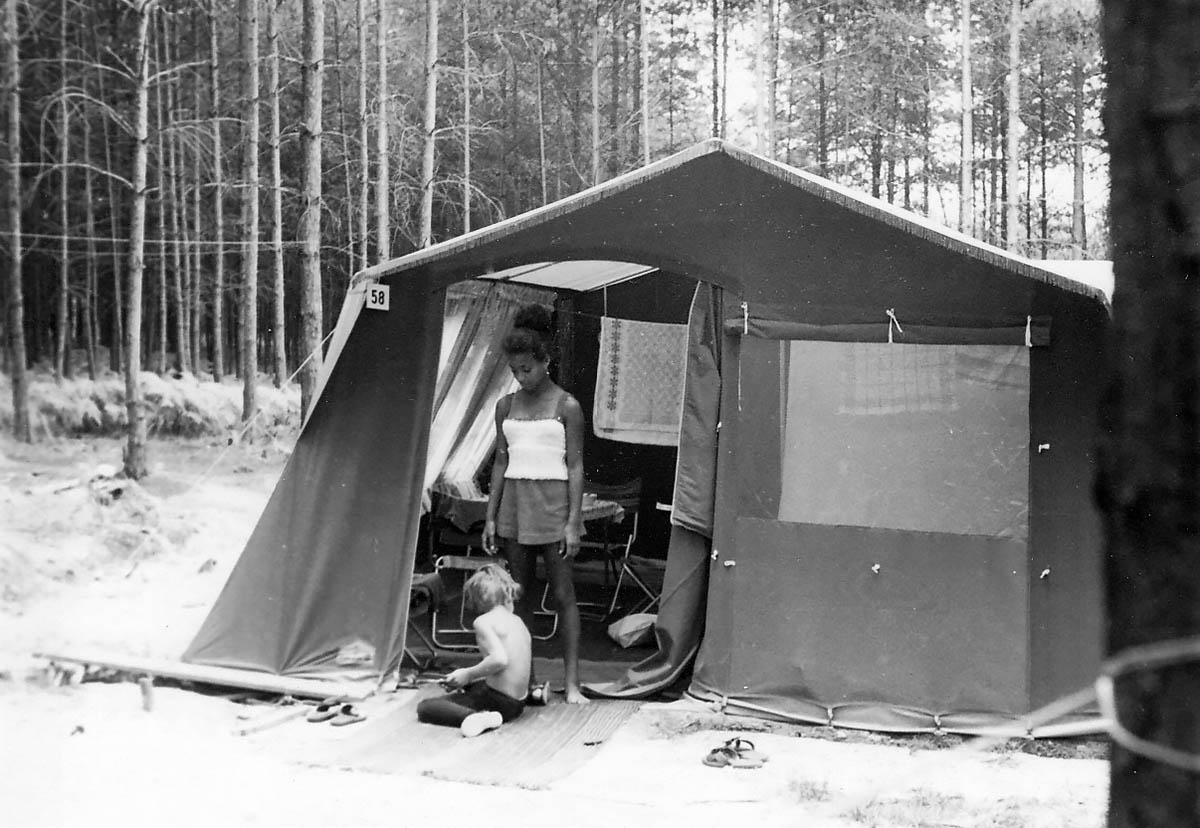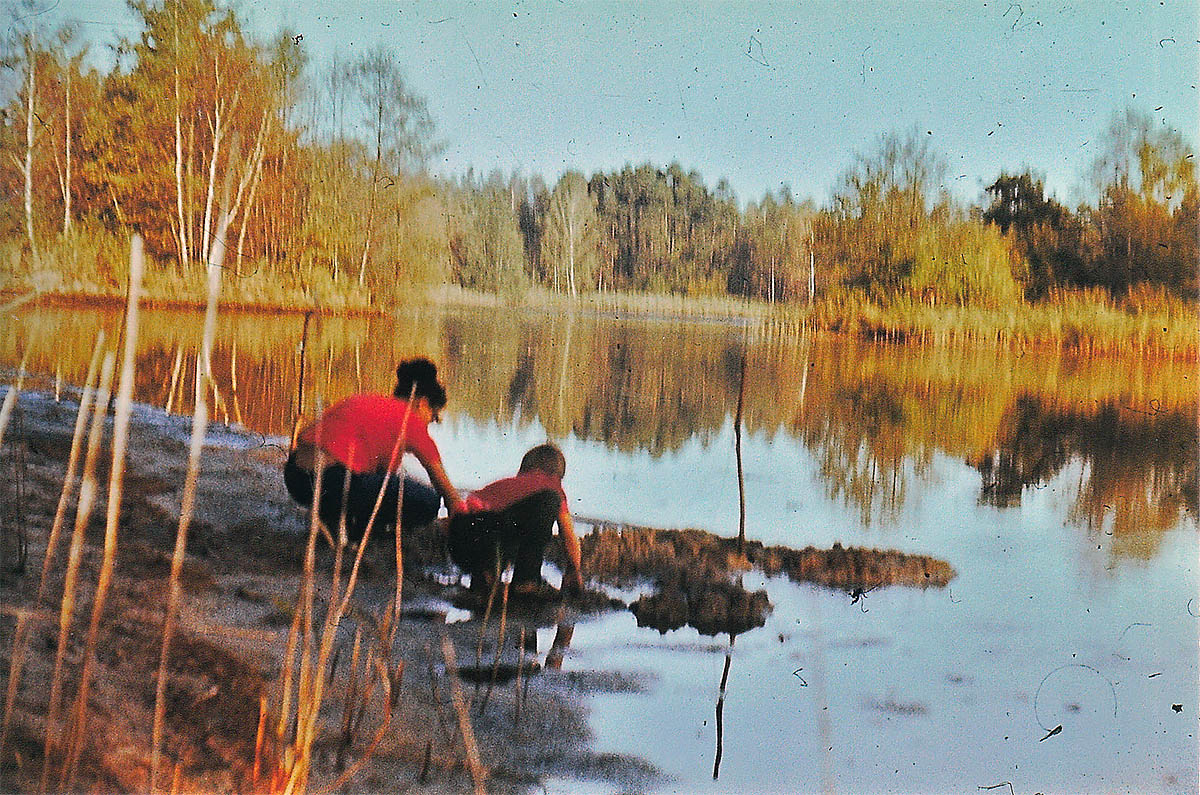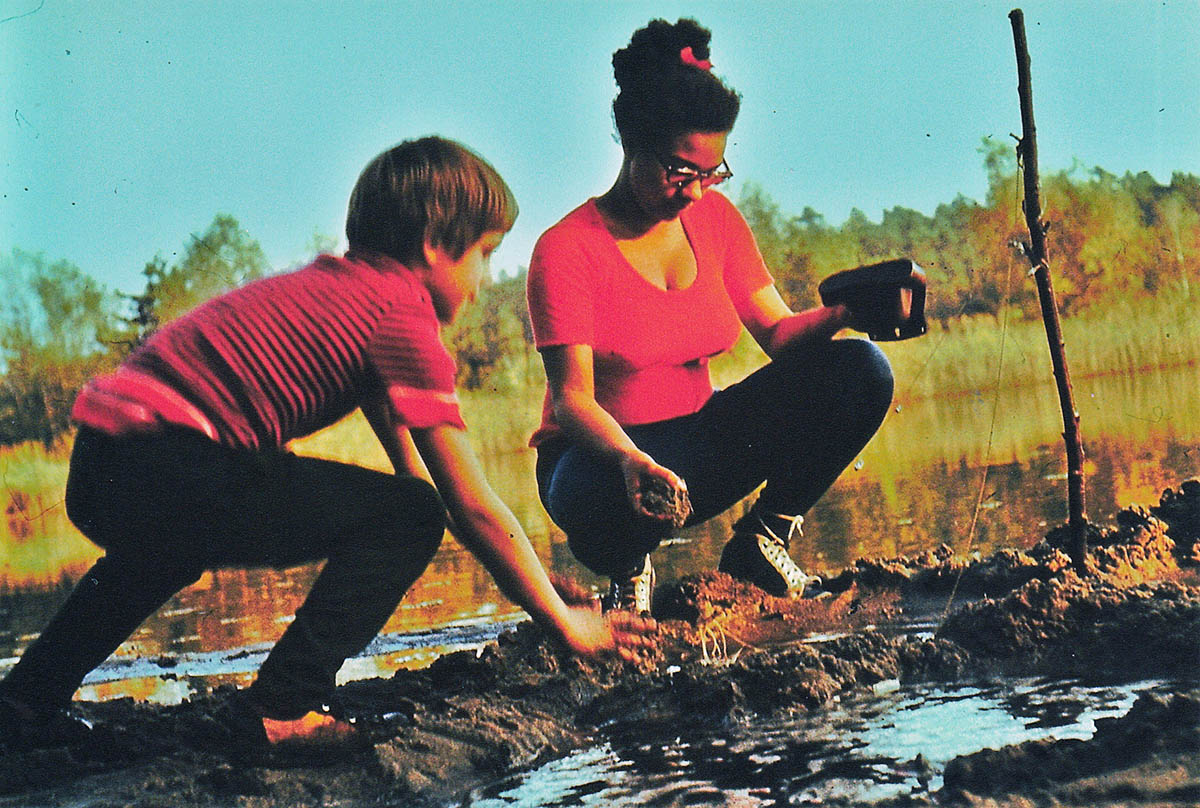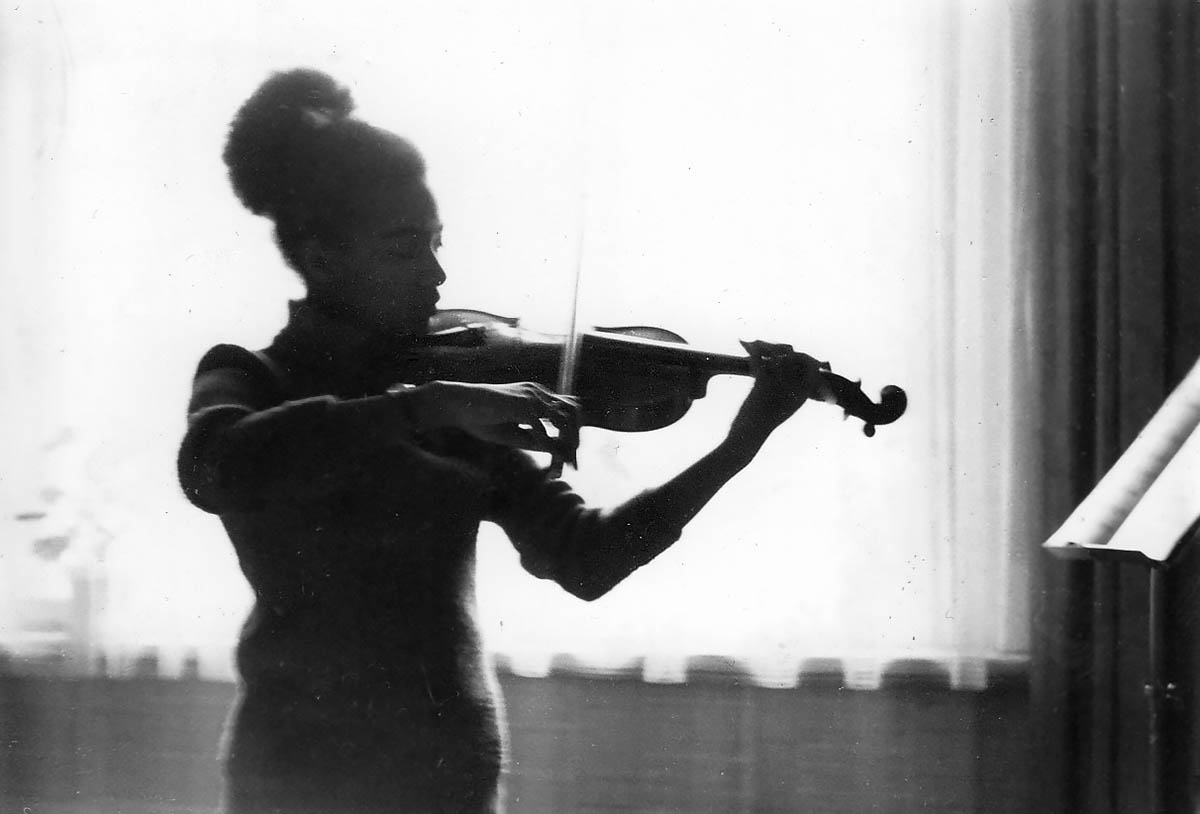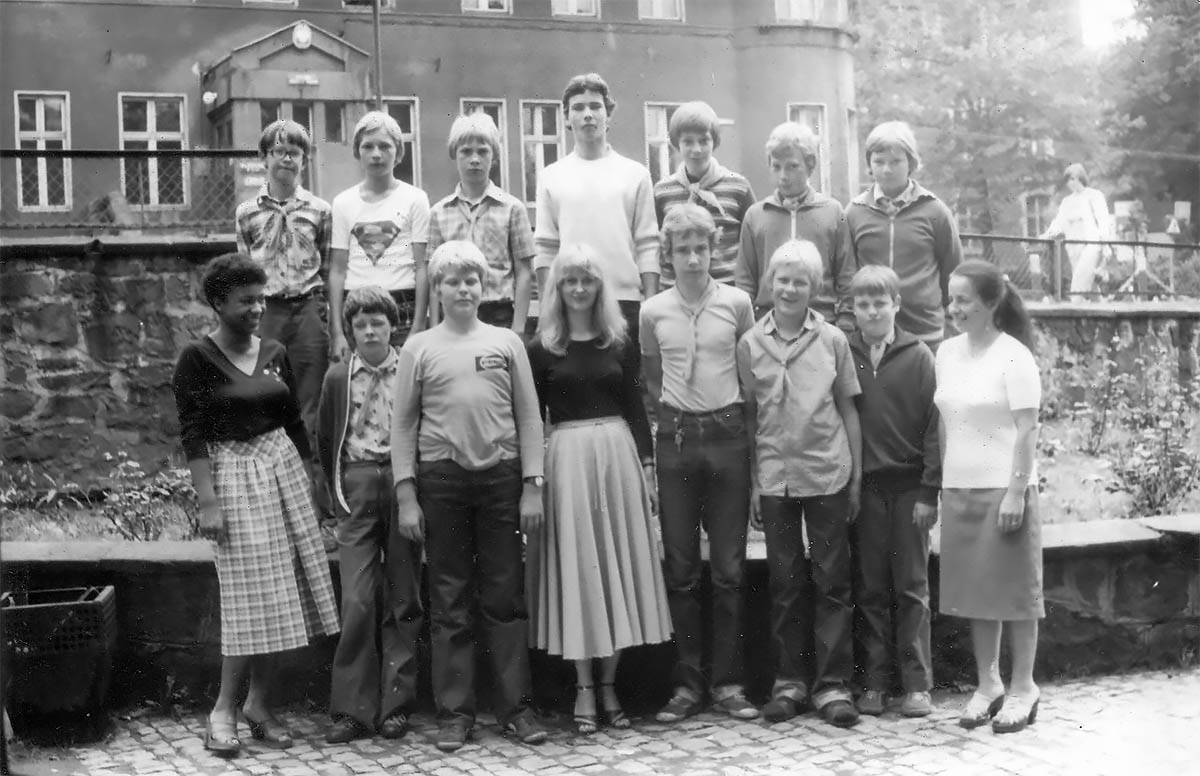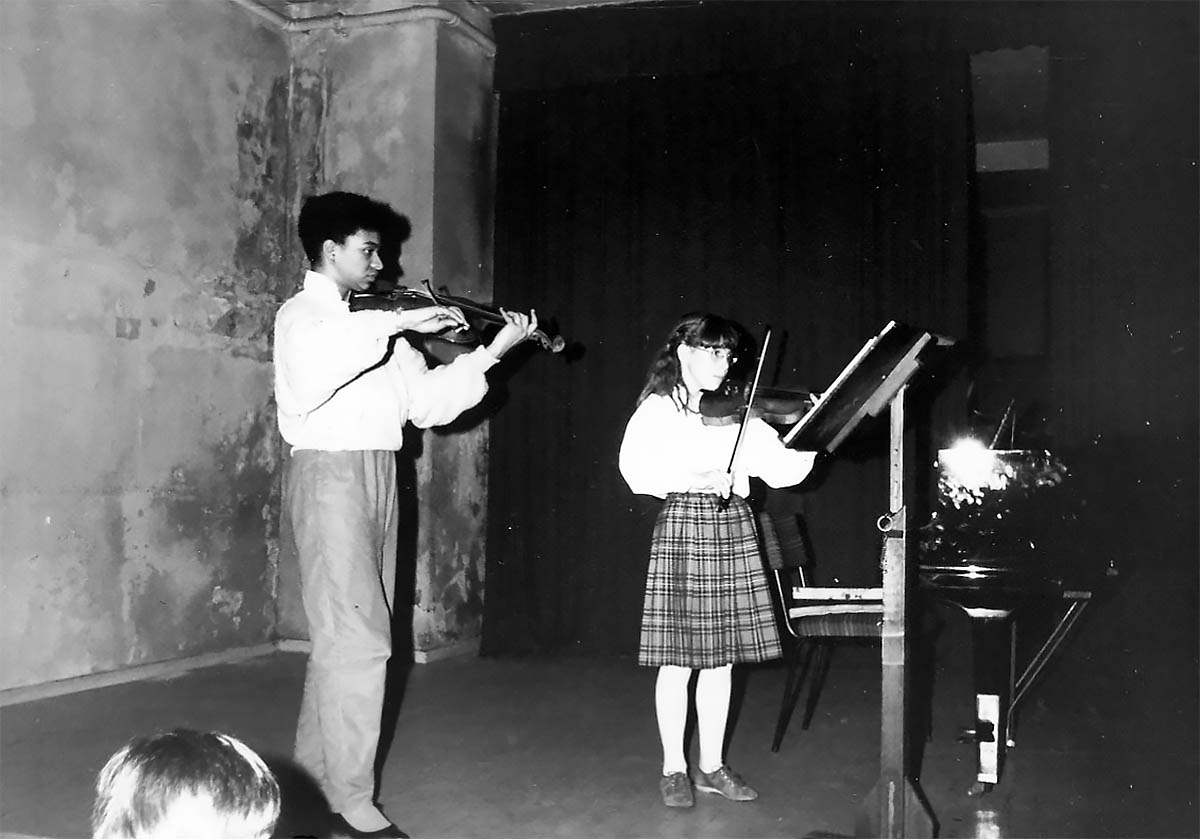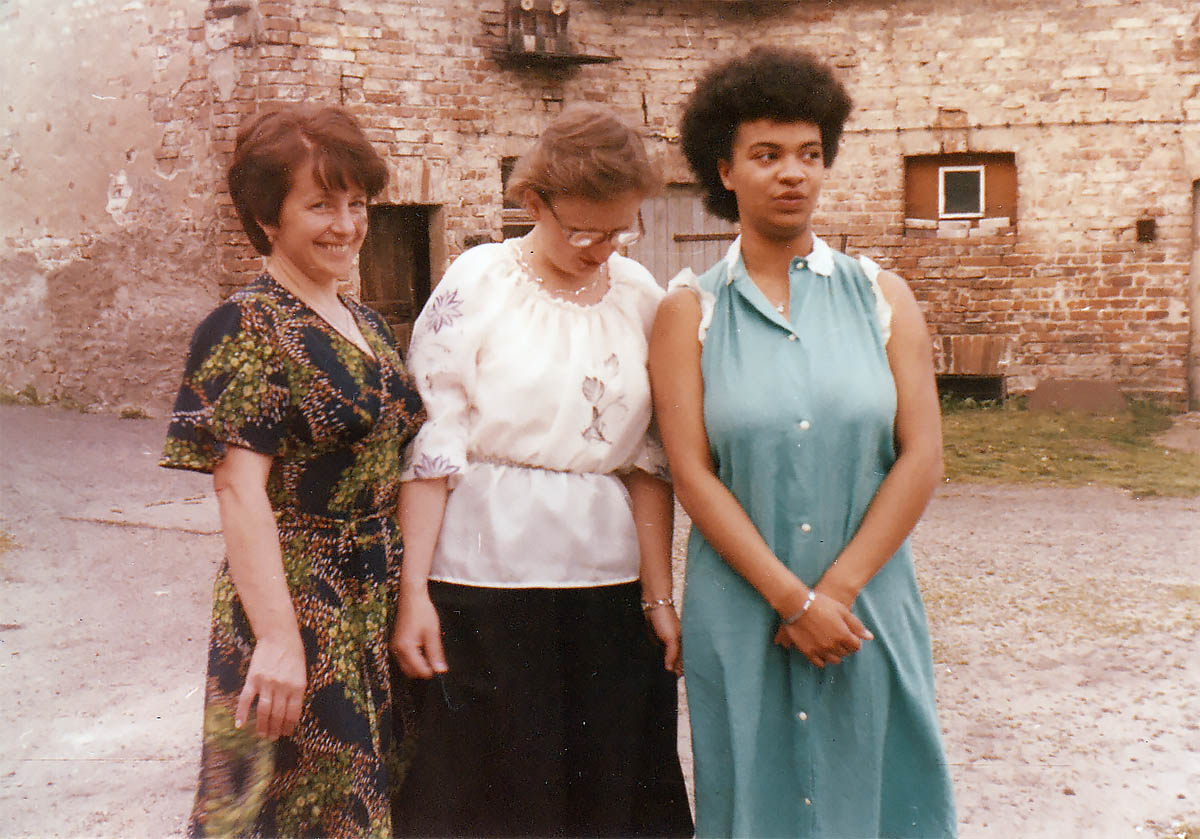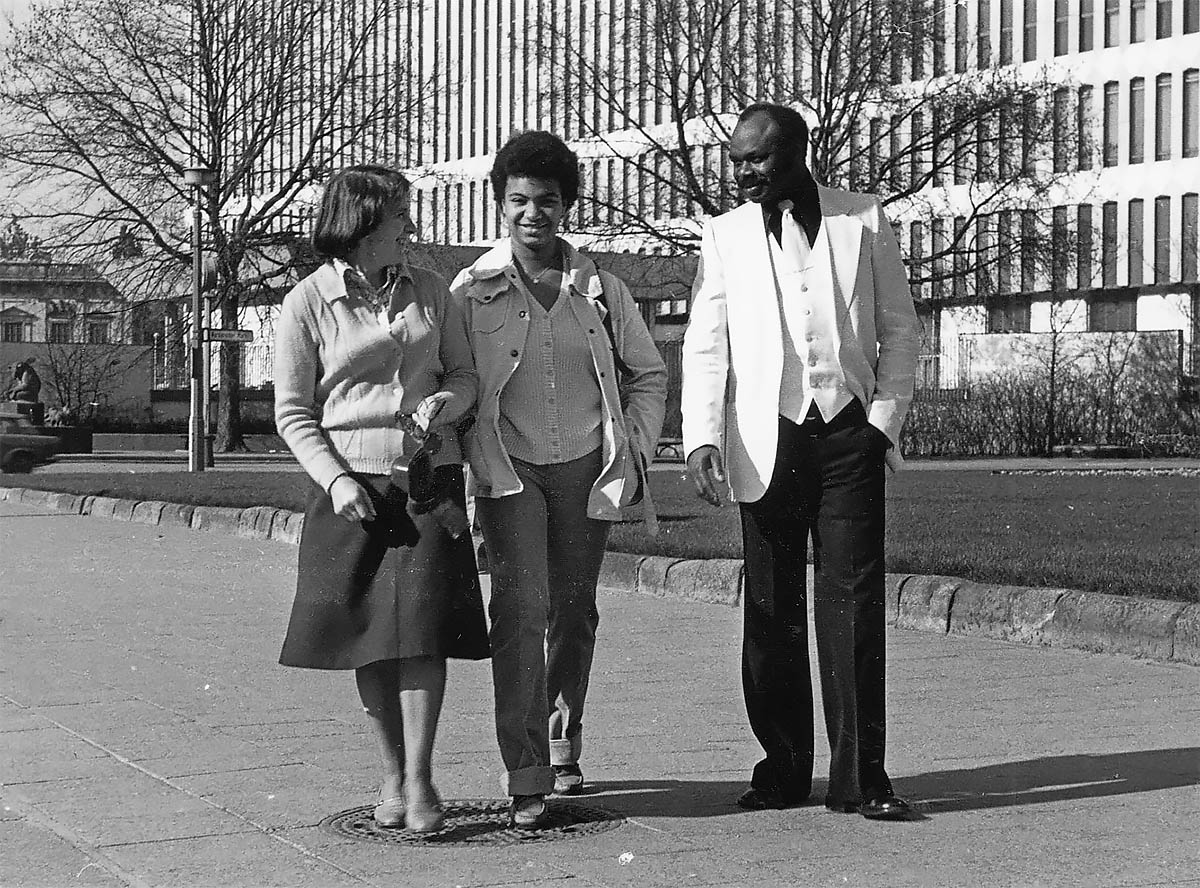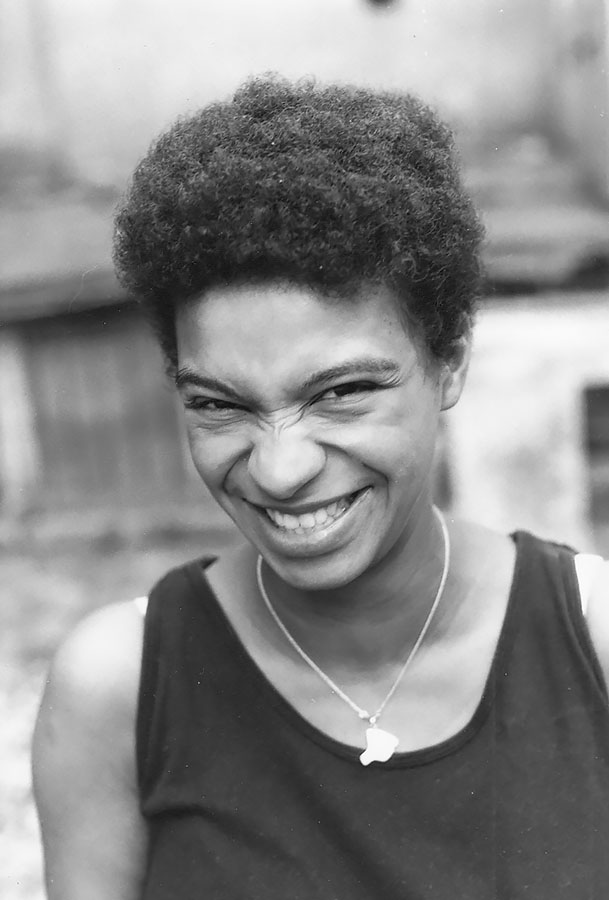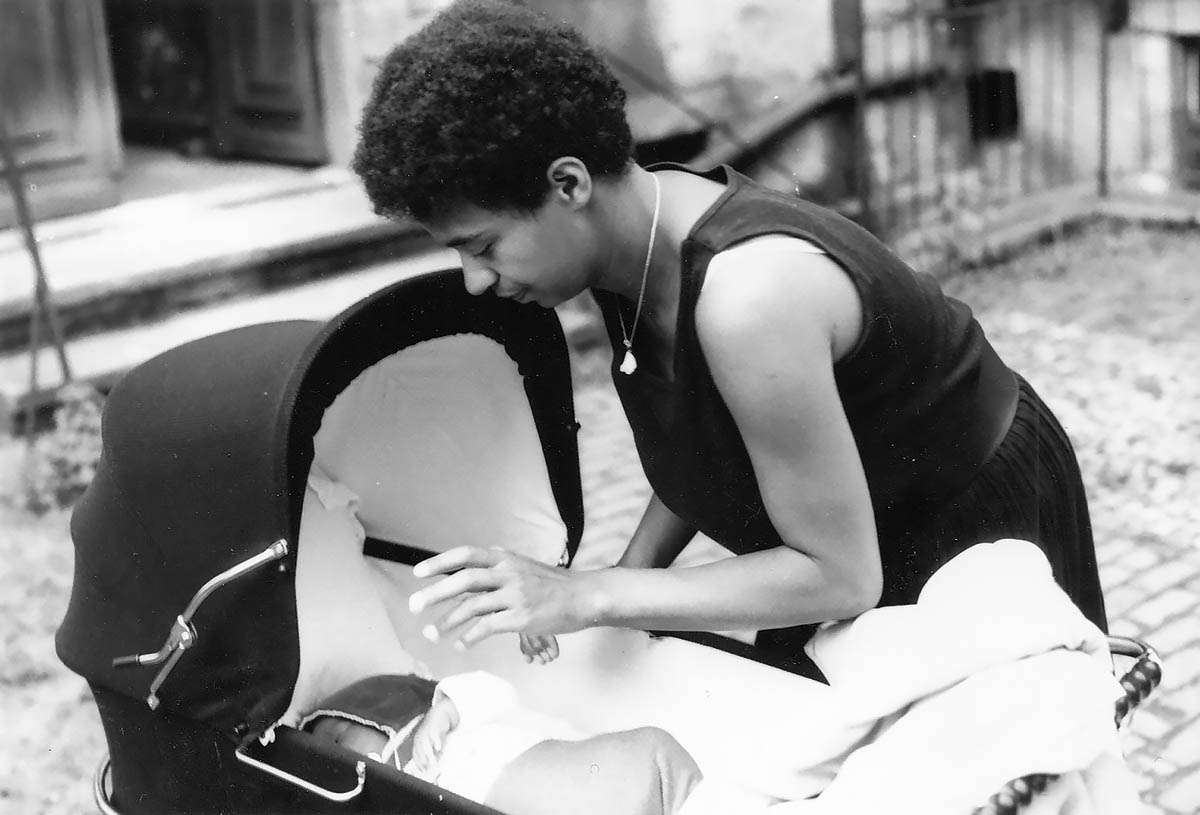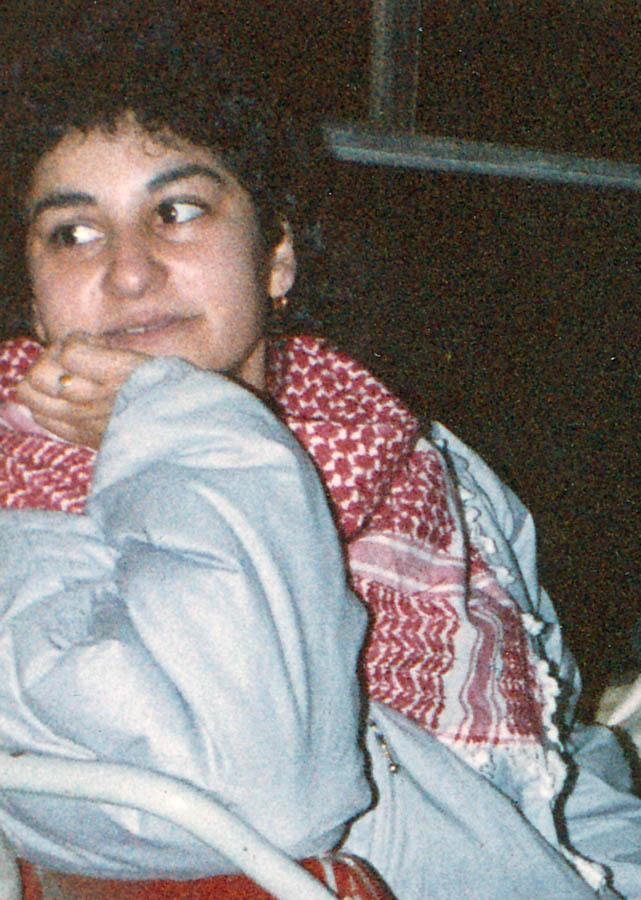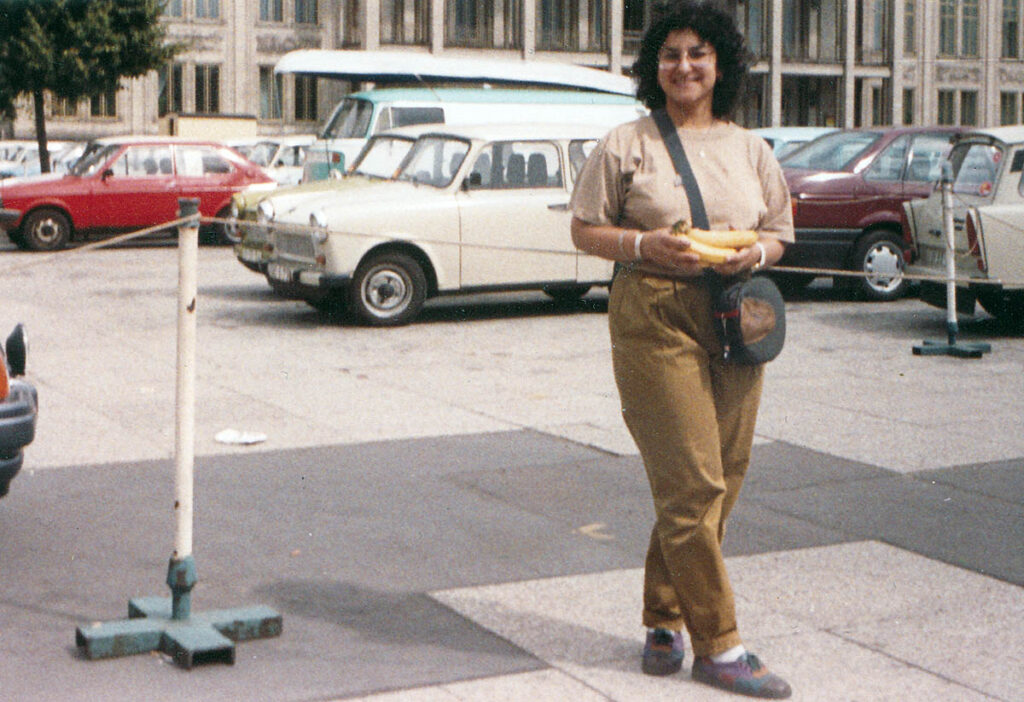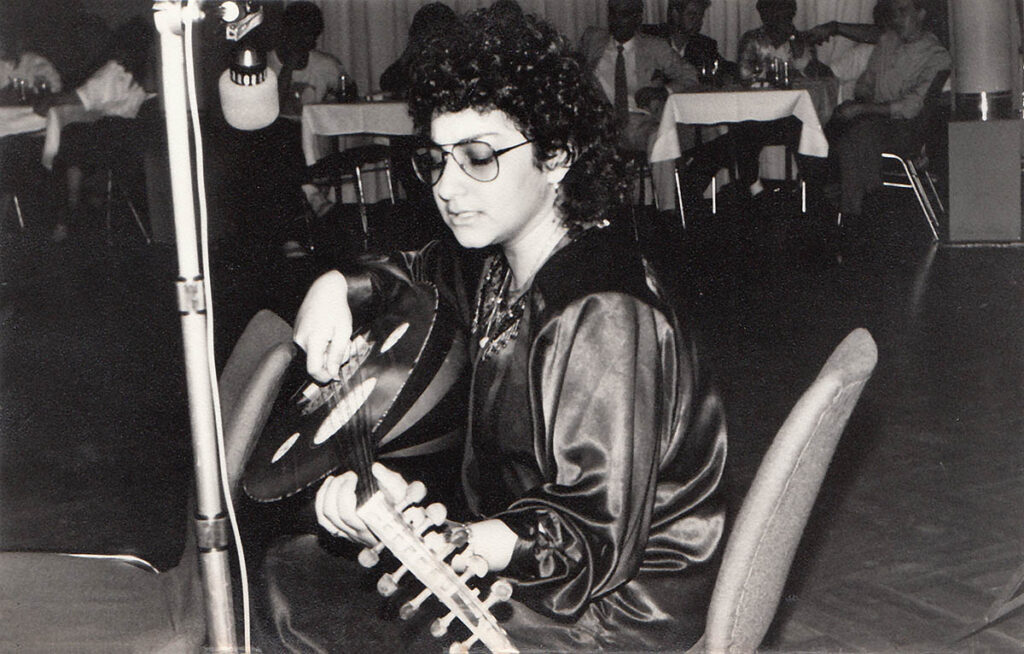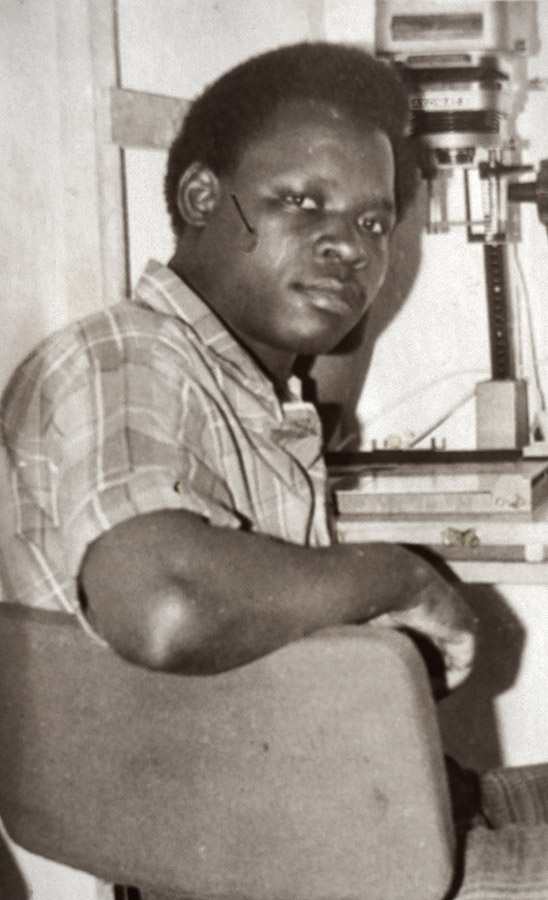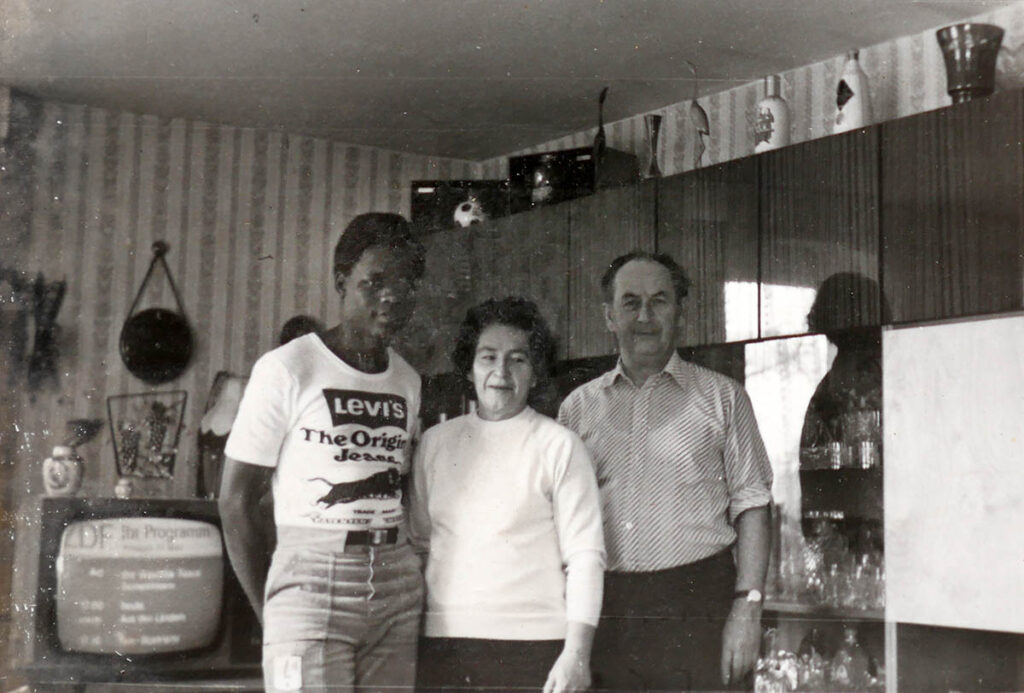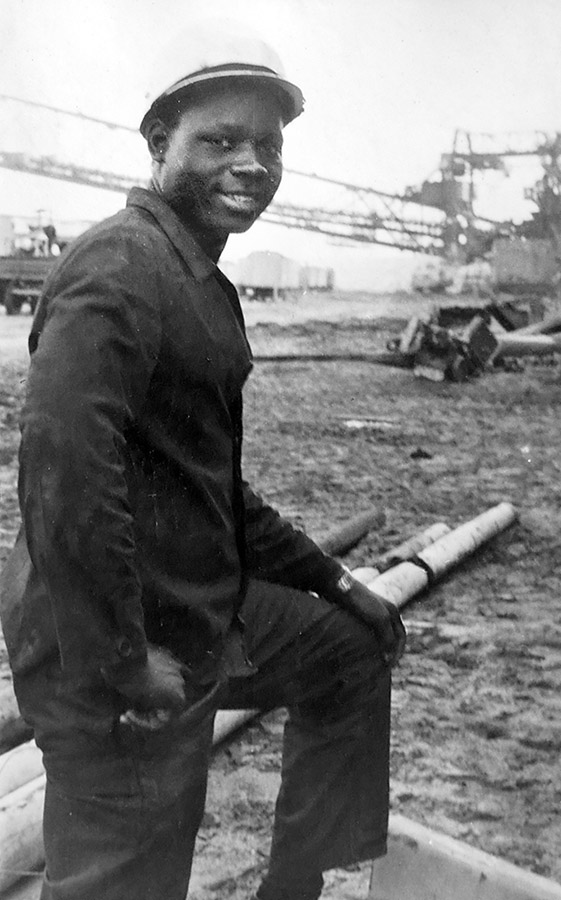Annette Hannemann
Annette Hannemann grows up in the 1970s. Her single mother raises her and her brother in a small village near Görlitz. She is fourteen when she meets her Cameroonian father. She becomes a passionate musician.
A country childhood
Annette Hahnemann’s parents meet on a harvesting subbotnik during the fall break. Edouard Yalla Ombiono studies mechanical engineering in Magdeburg, Johanna Wiesner at the Pedagogical College in Wüstrow. Like in almost any other East German industry, there is a labor shortage in agriculture. Therefore, young farmhands are recruited from various population groups. For students like Annette’s parents, the potato picking assignment in Leitzkau lasts three weeks. During that time a summer romance develops between Edouard and Johanna. Edouard does not find out about the subsequent pregnancy until after the birth.
Village life
Johanna Wiesner decides to raise her daughter alone. Annette grows up in Kreba-Neudorf, a small village west of Görlitz. Her mother works as a teacher at the village school. Annette describes her childhood as a blissful time. She enjoys growing up in the rural environment surrounded by uncles, aunts and grandparents. The fact that as a black child she looks different does not seem to matter at first. Still her mother often admonishes her: she is expected to do everything perfectly, always salute others and be exceptionally polite. She is expected to do well at school, not to disgrace her mother. If she stands out anyway, then at least in a positive way. “I grew up with that pressure, which was distressing to some extent. It pissed me off. Sometimes I would have liked to run away, which eventually I was able to do”, says Annette.
We desperately wanted to be Pioneers. Obviously we wished to belong.
Annette Hannemann, August 2022
Like most children in the GDR, Annette Hannemann too belongs to the Socialist Youth Organization Thälmannpioniere and later the FDJ (Free German Youth). Their trademark are the blue and red neckerchiefs, and then later the blue FDJ blouse. The only kids in the village who don’t join are the vicars’ children.
Happy Campers
When Annette is five years old, her brother Boris is born. Annette loves being a big sister. In the summer, the family spends the weekends at their permanent campsite in Quitzdorf. Every spring the tent is pitched in the same spot. Both siblings are also out and about a lot at home in Kreba-Neudorf.
Annette becomes a musician
At the age of thirteen, Annette Hannemann takes up the violin. Her violin teacher in Görlitz recognizes her talent, supports and encourages her. She recommends the Specialized School for Music (Sächsisches Landesgymnasium für Musik) in Dresden. After only one year of violin lessons, Annette passes the entrance exam. Thus the gateway to a new world opens.
Annette Hannemann recalls how music has changed her life.
Moving to Dresden
From that time on, Annette Hannemann lives during the week at the boarding school in Dresden. Many of the aspiring musicians at the Specialized School are less conformist than the people in the village. For Annette this is a liberation. She dreams of playing in the orchestra, but for her, as a young black woman, this option does not exist. Instead she is slated for training as a music teacher.
During summer break, Annette earns some money as a camp counsellor. On these trips to Poland, she always brings along her violin. She enjoys the atmosphere and gives her first performances in the evenings by the campfire.
Between stage and camp
In 1982, Annette Hannemann begins her studies at the Dresden College of Music. During the second year at university, the whole class attends the so-called Civil Defense Camp. In East Germany, military education is a compulsory part of education. In the CDC, young people receive basic military training. They have to line up for morning roll call, march, complete cross-country runs and shoot with an air rifle. When Annette, as the room eldest, does not provide the sufficient discipline, she is reprimanded. She is threatened with deregistration. But she is not intimidated. By now she is acquainted with the college’s dance musicians and has had a taste of stage life. As a singer, she often performs with them at concerts.
The Father
Edouard Yalla Ombiono does not find out that he is a father until after Annette’s birth. He contacts the mother and sees Annette from time to time until she is three years old. After that, contact is cut off. Ten years later a letter arrives from him. He now lives in West Berlin. Annette’s mother arranges a meeting in East Berlin. Annette is fourteen years old when she consciously meets her father for the first time.
Annette Hannemann recounts the encounter with her father.
From now on Annette and her father keep in touch. They both regularly write each other long letters. He sometimes sends parcels, procures the expensive violin strings in the West. They keep in touch until he goes back to Cameroon in 1988. Their contact dwindles away. It is not until much later that she learns through the Cameroonian community that he died in 2007.
Also in 1988 Annette’s son Benni is born. Annette is a proud and happy mother. Her partner is a musician too, who travels a lot. In the 1990s, Annette stays at home with the child and works as a music teacher, initially in Görlitz.
In 2007, Annette Hannemann founds the gospel choir ROY.Ombiono (Roots of Yalla Ombiono), unaware that her father has died that same year. Today she lives in Dresden. She teaches and performs in various constellations and projects as a singer.
Credits:
Nguyễn Phương Thúy conducted the interview in Dresden in 2022 .
Text: Julia Oelkers
Research and research protocol photos: Nguyễn Phương Thúy
Video edting concept: Julia Oelkers
